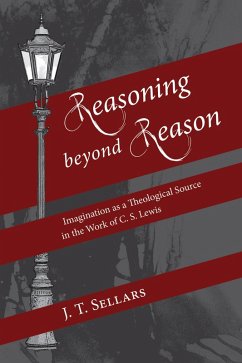There is a seeming dichotomy in C. S. Lewis's writing. On the one hand we see the writer of argumentative works, and on the other hand we have the imaginative poet. Lewis also found this dichotomy within himself. When he was a rationalist and atheist he found that these two sides of him were pulling in different directions: he believed that his rationalist side could not be reconciled with his imaginative side. Once he became a Christian, he eventually found a means of marrying the two--principally, through story and myth. Within C. S. Lewis studies, there is also a common conception of Lewis as a modern rationalist philosopher, i.e., a rationalist who thinks arguments (and his arguments in particular) are the last answer on the questions he undertakes. Reasoning beyond Reason attempts to take this view to task by placing Lewis back into his pre-modern context and showing that his sources and influences are classical ones. In this process Lewis is viewed through the idea that imagination and reason are connected in an intimate way: they are different expressions of a single divine source of truth, and there is an imagination already present upon which reason works. Lewis's "transpositional" view of imagination implicitly pushes towards a somewhat radical position: the imagination is to be seen as theological in its reliance upon something more than the merely material; it necessarily relies on a transcendent funding for its use and meaning. In other words, the imagination is a well-source for what we might normally label "rational."
Dieser Download kann aus rechtlichen Gründen nur mit Rechnungsadresse in A, D ausgeliefert werden.


